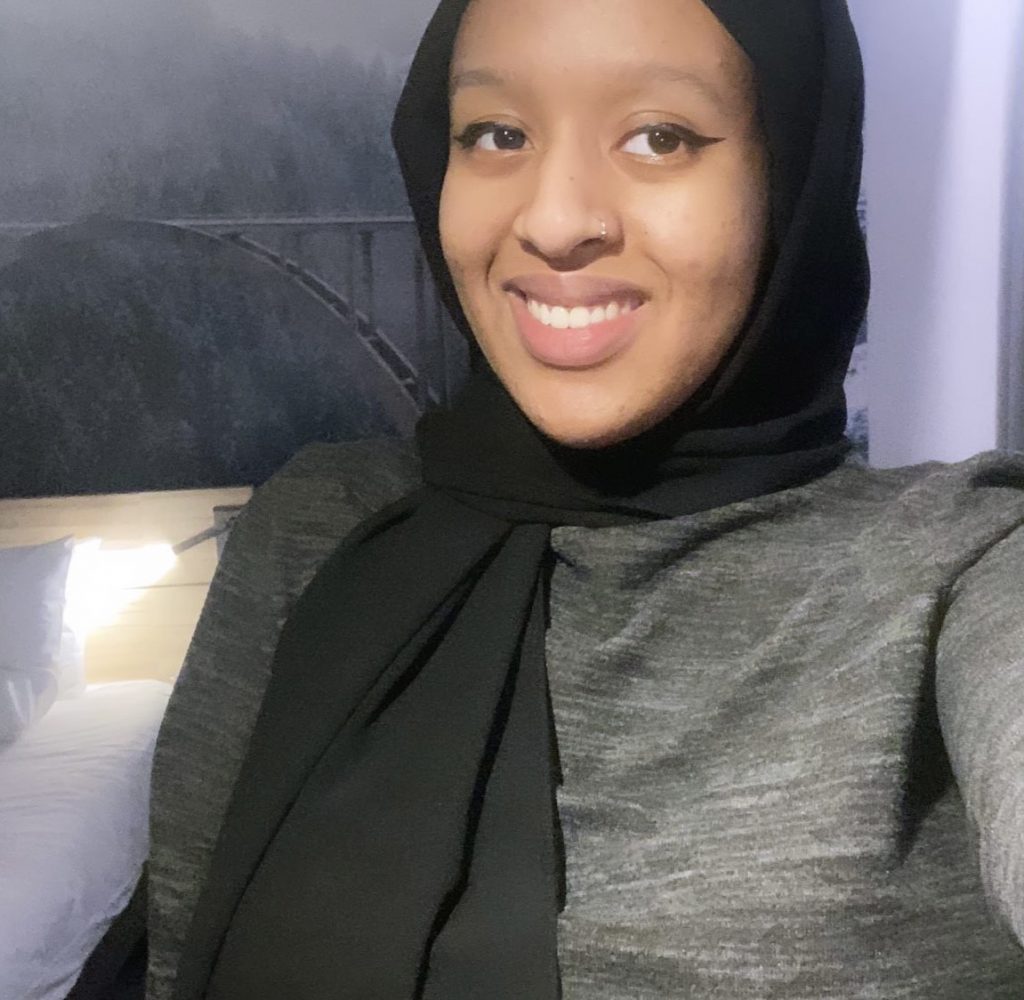Ramla Dirie has recently begun working as a researcher for 72 Films in London and hopes to use her roles within the media industry to improve the depiction of diversity on TV in the UK.
The English and Media BA (Hons) and Investigative Journalism MA student is also being mentored on the Gierson DocLab scheme, which is run by The Grierson Trust.

She said: “Even when I do a story that isn’t about Black people, I see myself, not on purpose trying to get diverse contributors. I just reach out to people and they just happened to be Black or Asian. This is why when the people who are working behind these documentaries and TV shows are people of colour you do see more people of colour on screen.”
The on-going pandemic means most of Ramla’s communication with her new team is currently either through emails or Zoom, making it harder to get to know her colleagues due to the lack of mixing in the office.
“It is more difficult to network and make the connections that are so important in the media industry,” she said.
“I am super fortunate to be working, it does feel really good, I feel like I am making a bit of headway in my career. Due to Covid, it’s extra difficult to kickstart your career.”
The aspiring documentary maker credits her two courses at DMU for giving her the confidence and the skillset to work in the media industry.
She said: “DMU is a sociable place. I noticed that my other friends did degrees were everyone was competitive. Whereas in media courses you bounce ideas off each other. It is almost like you are preparing for work. I didn’t realise that until I graduated that I did a lot of talking in class and that prepared me for working in the media.”
Issues of equality and the depiction of stories featuring people from diverse communities in the UK underpin Ramla’s work.
“It’s so important, we get our stories heard. If I don’t come up with the story idea someone else will and they may get it wrong. We have seen that happen before,” she said.
UK broadcasters have been setting strategies and introducing initiatives to enhance diversity in their workforce and on-air.
Ramla said: “I had it so easy in school because I felt I was catered too. The teachers knew the demographic of the students at the school and so they adapted rather than me having to adapt. Which is the right thing to do if your class is majority ethnic minority.”
“I remember in GCSE English we questioned the book we were studying because it wasn’t the same as other GCSE students’. The teacher said it’s about a girl and her family who immigrated, and I realised he had chosen it so we could relate to it. I didn’t realise just how useful connecting with the story was. I was catered to. University was different. I had to work harder to understand.”
She would like universities to support diversity endeavours by educating and embedding diversity in the teaching.
“I was one of the few or only Black or Muslim person in the classroom. But at my secondary school in Leicester over 90 % of the students were exactly the same as me. I was so blessed so fortunate. I got to Uni and I wondered am I different or are you different?”
You must be logged in to post a comment.